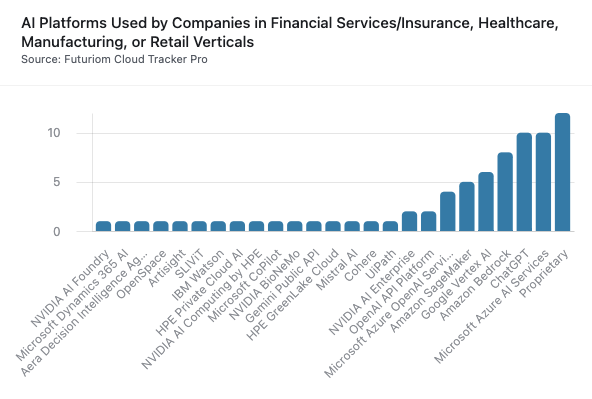Why Enterprises Prefer Proprietary AI

Enterprises investing in AI are using a variety of tools to generate AI applications, and Futuriom research shows a startling preference for proprietary technology.
Futuriom's Cloud Tracker Pro services is now building a private database—the Enterprise AI Index—which includes more than 100 case studies of enterprises building AI capabilities and services. The four top vertical markets using AI show a preference for building proprietary, or private, AI platforms, even though several large enterprises are deploying external, or vendor-specific, models on those homegrown platforms, as shown in the charts below:

It may seem puzzling that financial services firms top the list of AI adopters, given some experts' views that the strict rules governing financial services might discourage use of AI, which still poses risks in terms of reliability. Proprietary platforms address these issues by giving firms a means of centralized control and guardrailing for AI apps.
Proprietary AI Platforms Run Variety of Models
An example of the trend toward proprietary AI platforms in finance is Bloomberg. The company created its own AI model, BloombergGPT, and has generated a proprietary platform around it for regulatory compliance and security. The model has added significant features to Bloomberg’s Terminal service, including natural language search, news and earnings report summarization, chat assistants for navigation, and risk and trend analysis. These capabilities are further supported by a BloombergGPT API available to external developers.
To access the rest of this article, you need a Futuriom CLOUD TRACKER PRO subscription — see below.
Access CLOUD TRACKER PRO
|
CLOUD TRACKER PRO Subscribers — Sign In |























